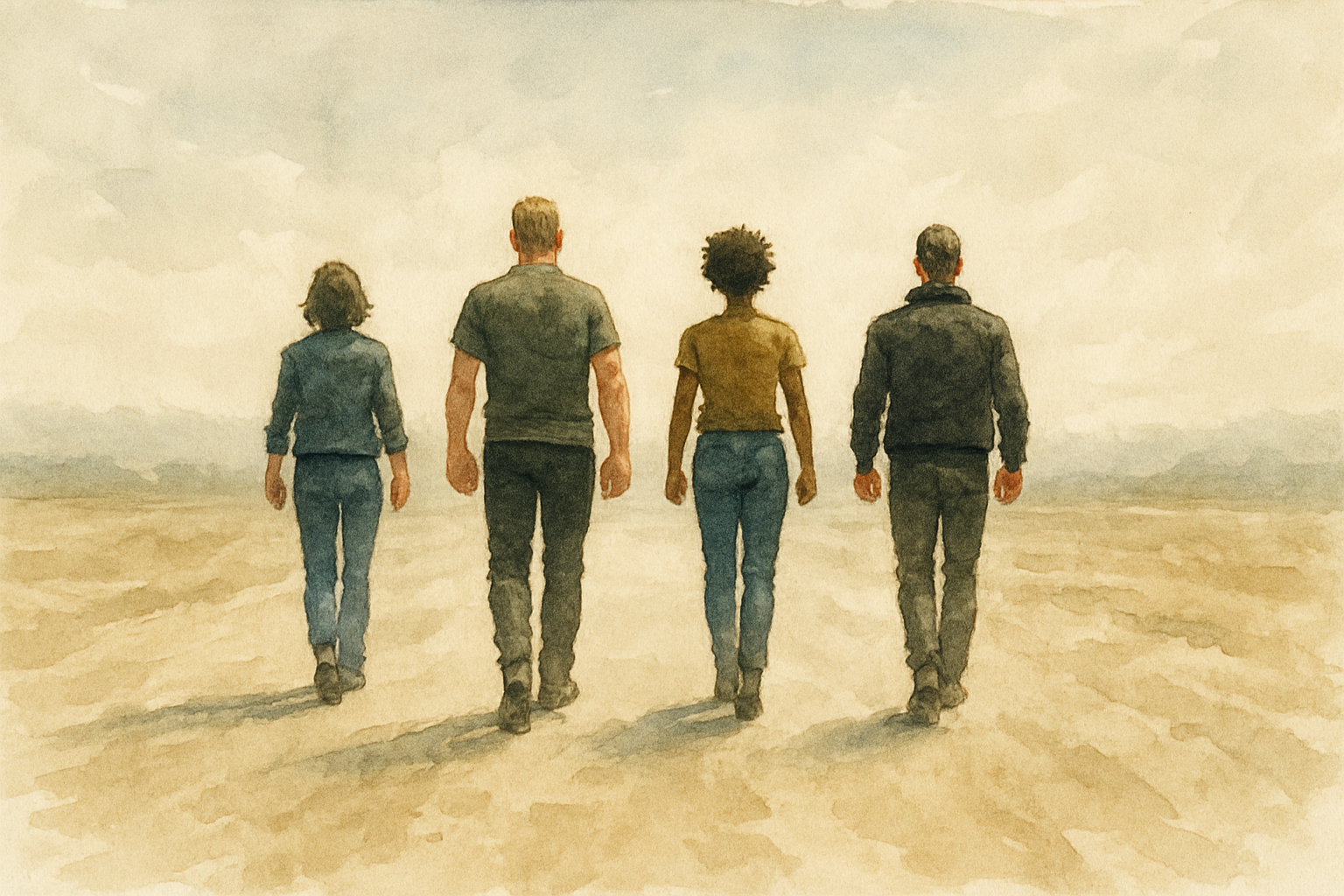The Unreasonable Ones: Making space for the people who bring change

There’s a particular kind of person that every system needs, but very few know how to hold onto.
They are the ones who don’t just ask, “How can we improve this?” but instead, “Why is it like this in the first place?” The ones who challenge assumptions before others even recognise them. Who look at accepted norms, familiar processes, or sacred cows and wonder if there's another way entirely. They aren’t just curious. They are unreasonable in the most essential sense of the word.
They question what others accept. They follow strange threads. They don’t stop just because something is inconvenient, off-brief, or doesn’t fit neatly into the sprint schedule.
And if you care about creativity, progress, or meaningful change. These are the people you cannot afford to lose.
“The reasonable man adapts himself to the world. The unreasonable one persists in trying to adapt the world to himself. Therefore, all progress depends on the unreasonable man.”
— George Bernard Shaw (from Man and Superman)

When curiosity becomes too costly
In earlier pieces, I’ve written about what it means to move without permission (What If… You Did It Anyway?), how systems resist the very curiosity they claim to celebrate (Why Systems Hate Curious People), and how everyday environments can be designed for exploration and invention (Grassroots Innovation).
But this piece isn’t about theory or systems. It’s about people.
Specifically, the ones who live at the edge of what's expected: and often get edged out.
The people who don’t play the game, or who play it and question it at the same time. The ones who still believe in the value of unproven ideas, who stretch timelines, complicate meetings, and make space for questions no one asked yet.
These are the people who drive real transformation. And they’re often the first to burn out.
How we lose them
It’s rare that these thinkers leave in a blaze of frustration. More often, they fade out quietly.
At first, they come with energy. They offer new perspectives, raise inconvenient truths, and suggest paths that don’t fit the roadmap. They slow things down. Not because they’re inefficient, but because they’re trying to understand what really matters.
And over time, they get the message: that kind of thinking isn’t welcome here. Not right now. Not unless it’s neat, polished, and ready to be implemented.
So they adapt. They stop sharing. They make fewer waves. They go along with what’s already working.

They still care, but with less voice, less visibility, and eventually, less hope.
You don’t lose unreasonable people because they’re difficult. You lose them because it’s exhausting to care that much with no one else willing to follow the thread.
Why we need the unreasonable ones
If you want new products, new processes, new ways of seeing: these are the people who will get you there.
Because unreasonable thinkers don’t optimise the system.
They question the system itself.
They’re the ones who ask, “What if the problem isn’t the process, but the premise?”
Steve Jobs refused to license Apple’s software because he believed design wasn’t just about function. It was about the full emotional experience. Everyone told him it was bad business. It was. Until it changed the industry.
Greta Thunberg skipped school to sit alone outside parliament. That wasn’t strategy. It was an unreasonable act of conviction. And it sparked a global movement.
James Dyson built 5,126 failed prototypes before the vacuum that disrupted an entire market. That kind of persistence isn’t logical. It’s obsession in service of reinvention.
Unreasonable thinkers see what others won’t.
Or can’t.
Or aren’t yet ready to.
They don’t treat success as a checklist. They treat it as a question still unfolding.
And they don’t want more freedom.
They want better design.
Design that gives them space to stretch ideas before they make sense.
Protection when their questions make others uncomfortable.
And leaders who don’t just tolerate their wildness, but defend it when it’s still fragile.
Because the future doesn’t arrive fully formed.
It starts as a spark in someone unreasonable enough to believe there’s a better way.
How to build space for the unreasonable ones
If you’re serious about progress, not just performance, you can’t afford to treat unreasonable thinkers as outliers.
These people are not side characters in your story of innovation. They are the story. They see what others miss, and often carry the early signals of change before anyone else knows how to listen.
But without the right conditions, they won’t stay.
They WILL burn out.
They’ll be labelled “too intense,” “too much,” or “not a fit.”
And they’ll take their future-shaping insight with them. To somewhere that knows how to hold it.
You don’t accommodate these people by loosening the rules or giving them special treatment. You accommodate them by designing cultures that can stretch without breaking. You build environments where friction is not only allowed, but understood as essential.
Here’s how:
- Give them a grey zone — Not every idea belongs in this quarter’s roadmap. That doesn’t mean it lacks value. Set aside dedicated space: off-brief sprints, curiosity budgets, experimental residencies. Let them work where the rules don’t fully apply yet.
- Let things stay messy longer — Don’t rush their questions into pitches. Don’t force every insight into a framework. Some of the best ideas are fragile before they’re brilliant. Give ambiguity more room to breathe. Let them follow what doesn’t make sense yet.
- Protect their spark — Unreasonable thinkers often feel the pushback first. The “be practical” looks. The “not now” comments. This is when their idea (and identity) is most at risk. If you lead, step in early. Affirm their direction, even when it’s still wild. Especially when it is.
- Offer cultural cover — Use your position to model bravery. Say the uncomfortable thing out loud first. Ask the inconvenient question. Stand next to the person whose idea is shaking the room. Show others that friction isn’t failure. It’s fuel.
- Reward impact, not polish — Don’t just celebrate finished decks and refined launches. Shine a light on the rough ideas that shift direction, that open eyes, that reframe the goal. Recognise what moved the work, not just what looked good doing it.
Making space for the unreasonable isn’t about loosening expectations.
It’s about deepening trust: in the person, in the process, and in the unknown.
It’s a posture, not a perk.
It requires courage from leadership, flexibility in culture, and a shared willingness to stay open. Even when the idea feels too early, too strange, or too uncomfortable.
But when you get this right?
You keep the people who see what's next.
You create teams that don’t just improve what is, but invent what’s coming.
And you build a culture where the question that once felt too unreasonable becomes the breakthrough everyone was waiting for.
Let them stretch. Let them question. Let them be bold.
And when others flinch?
You stay.
That’s how change takes root.





